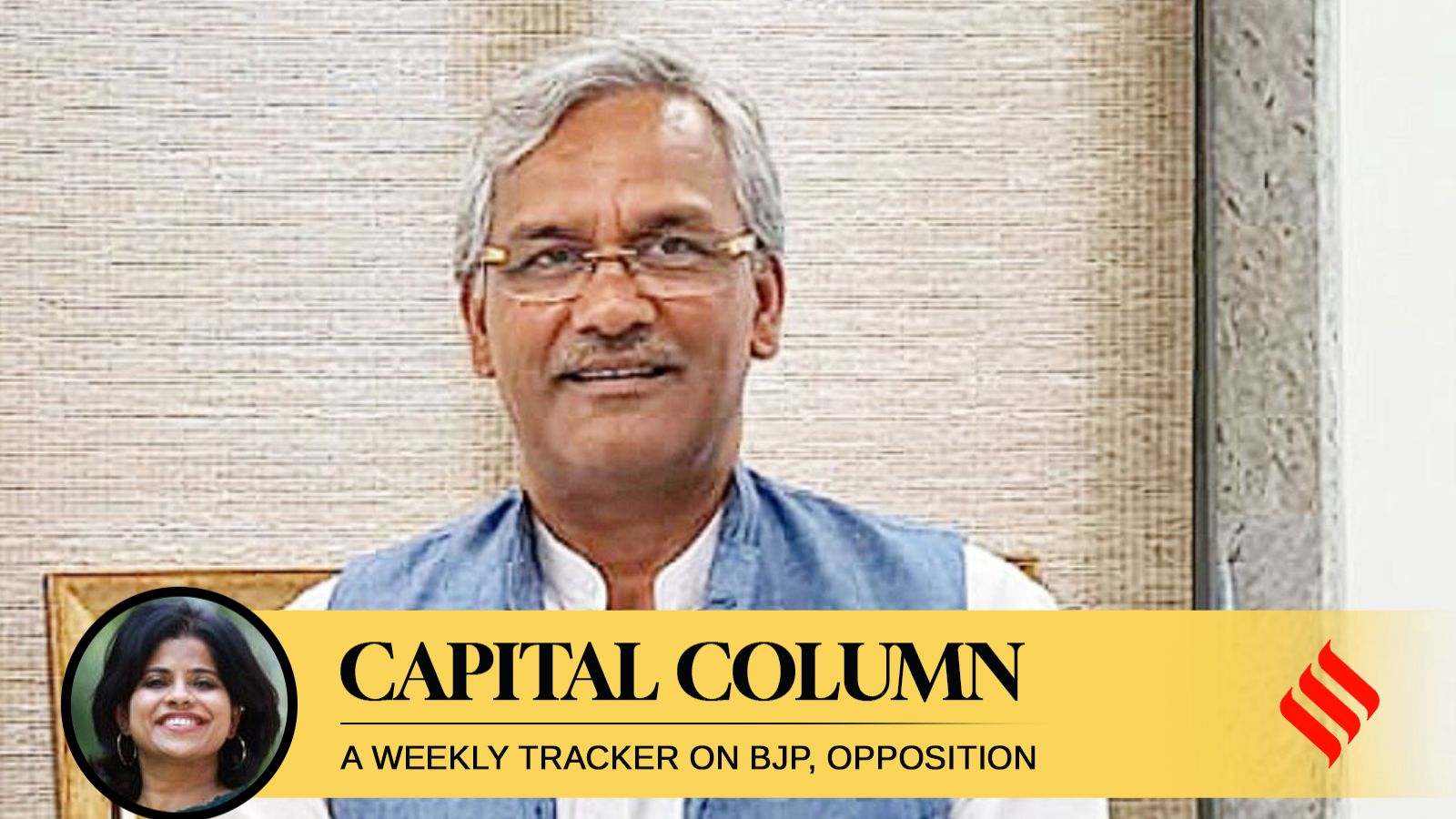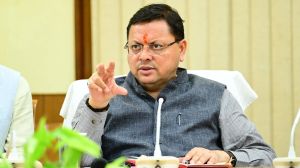As the BJP continues its winning streak plus expands its size and spread, its famed discipline is showing cracks in several states.
The latest rumblings of dissent were heard in Uttarakhand, with former chief minister and Lok Sabha MP Trivendra Singh Rawat claiming in Parliament that “rampant” illegal mining was on in the state. In Uttar Pradesh, the BJP recently issued a show cause notice to its Loni MLA Nand Kishore Gurjar over his criticism of the Yogi Adityanath government in public. In Karnataka, the BJP’s only southern stronghold, the party had to resort to the expulsion of its MLA Basangouda Patil Yatnal, after he didn’t let up on his attacks on former CM B S Yediyurappa and his son and state BJP chief B Y Vijayendra.

BJP leaders said that one reason for factionalism spilling out in public across units was the number of people it had inducted from other parties in the pursuit of power or of influence in states where it has a minor presence. It also comes amidst the long-drawn revamp of the party organisation, from the bottom up.
But, even among the various instances, the Uttarakhand case stands out, starting with the fact that Rawat chose Parliament as his stage. “A former CM alleges rampant illegal mining in a party-ruled state, right under the noses of the Prime Minister and other Central leaders!” a party leader says.
What exacerbated matters was Rawat taking on state Mining Secretary Brajesh Sant, who countered the MP with a fact sheet countering his charges. On what he would do next, Rawat said: “A lion does not hunt a dog.” Given that Rawat is an upper caste Thakur and Sant a Dalit, his remark was slammed as casteist.
The Uttarakhand IAS Association then held a protest against Rawat over his remarks, and it was seen as having the blessing of Chief Minister Pushkar Singh Dhami.
Barely hiding his surprise, a party leader said: “This does not sound like a BJP-ruled state.”
Story continues below this ad
The BJP has always grappled with factionalism in Uttarakhand. In 2007, when the party returned to power in the state, Maj Gen (retd) B C Khanduri was sworn in as CM, but lasted only two years. He was replaced by Ramesh Pokhriyal Nishank in 2009, but told to give his place to Khanduri again in 2011 – just five months before the Assembly elections.
Rawat is still nursing the wounds from 2017, when he was made the CM after the BJP returned to power after a gap. With just a year to go for the Assembly polls, he was replaced with Lok Sabha MP Tirath Singh Rawat, who in turn gave way to Dhami within four months. Dhami’s loss in the 2022 Assembly elections from Khatima constituency was also attributed to internal differences in the party.
While Dhami was made CM despite the loss, his detractors say that the high command has become increasingly concerned about his “focus on perception over governance”. “Dhami is a frequent visitor to Delhi, where he keeps meeting Central leaders to be in their good books, even as the governance at the ground level has not yet picked up,” said a party MP.
Those close to Dhami, however, attribute Rawat’s charges to his apprehension over graft charges against him being revived. And accuse Rawat’s rivals of trying to create trouble as they want his chair.
Story continues below this ad
Similar rivalry is believed to be playing out in Uttar Pradesh, with BJP MLA Gurjar a close associate of Deputy Chief Minister Keshav Prasad Maurya. For some time now, Maurya has had a bristly relationship with Adityanath.
In Karnataka, the expulsion of Yatnal is seen as a clear hint by the central leadership to the state unit to fall in line behind Yediyurappa and Vijayendra. Yatnal, who often takes shrill Hindutva positions, is now exploring the possibilities of launching a new party to “protect Hindus”.
BJP leaders admitted that such a move by Yatnal could hit the party’s core base.

































